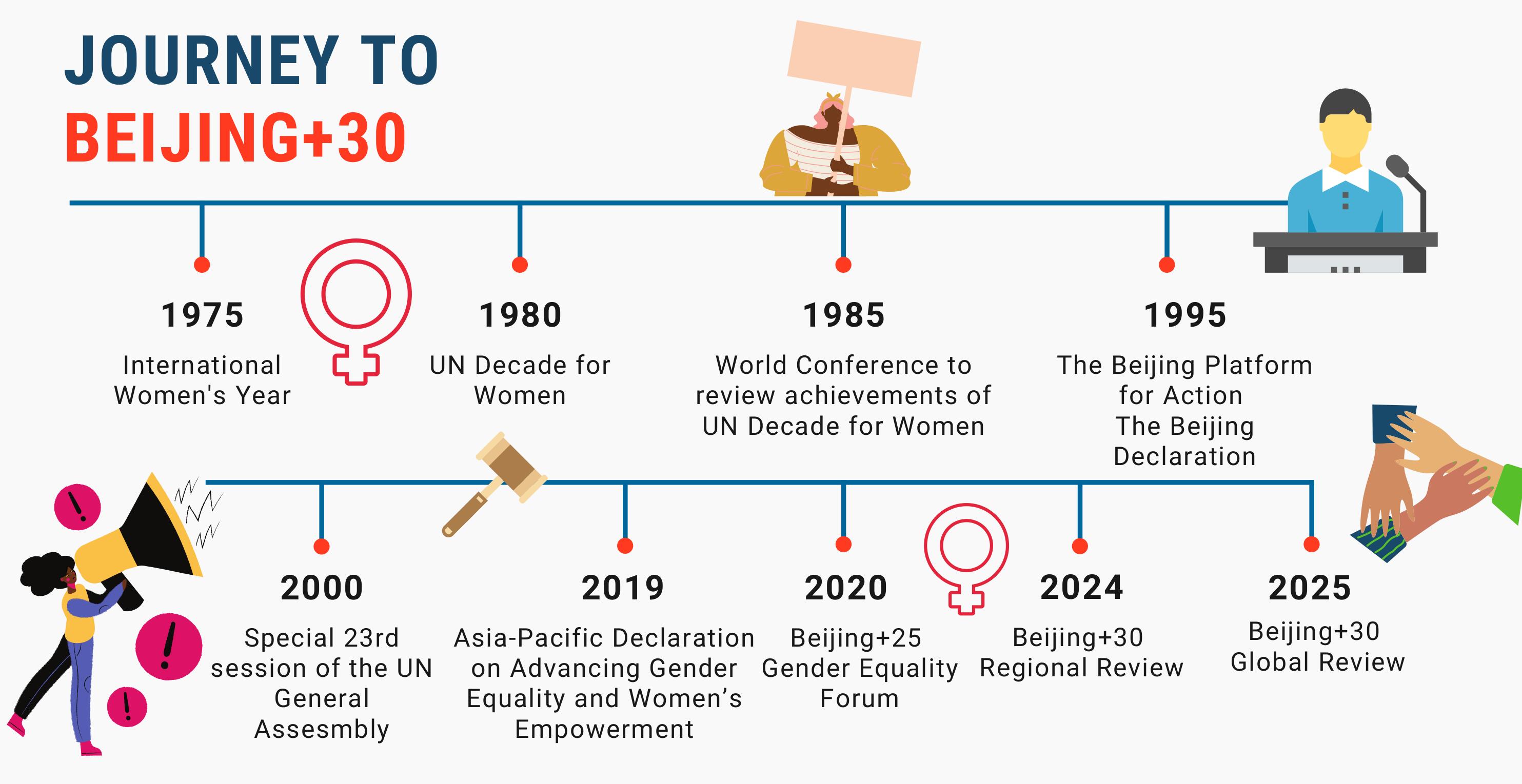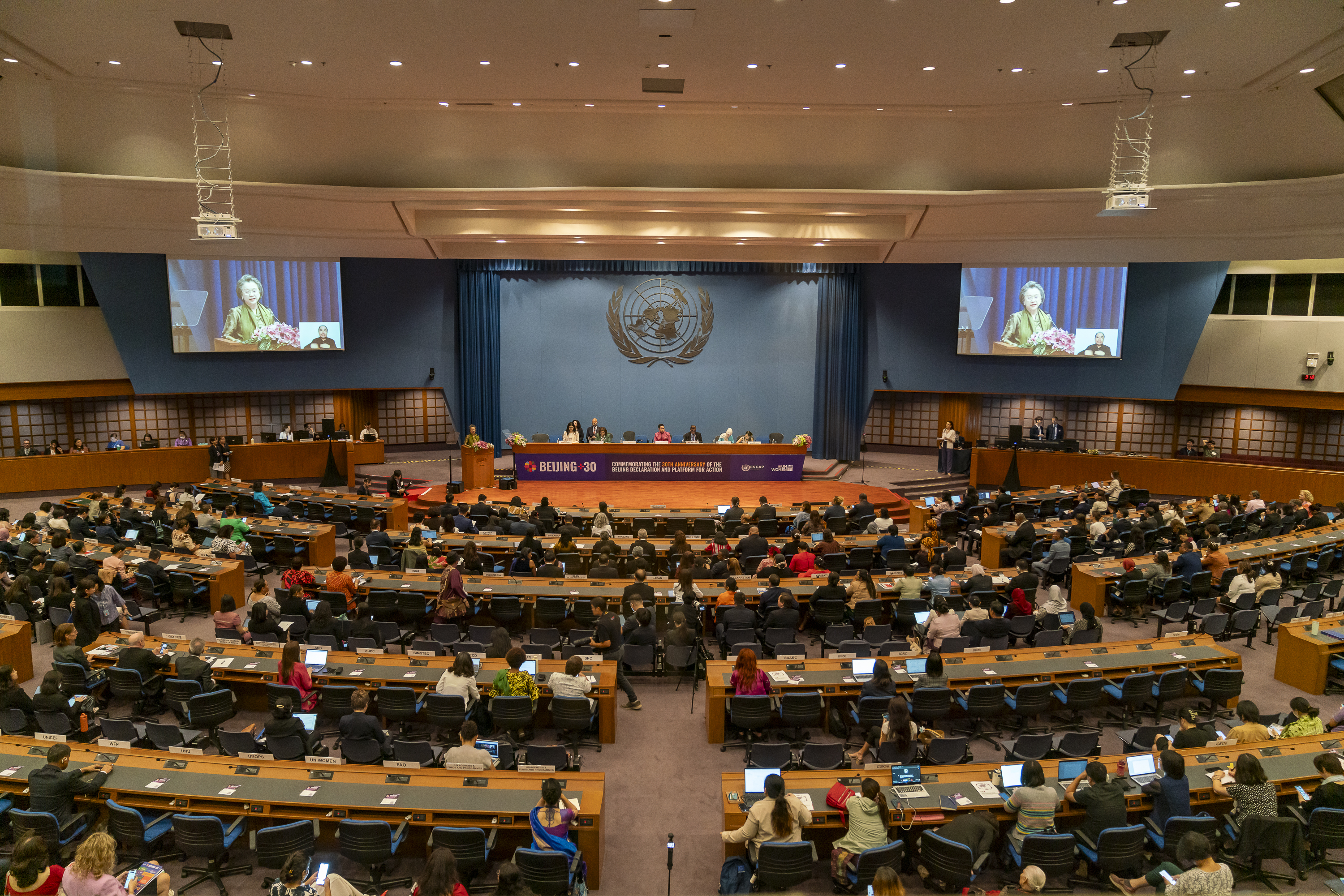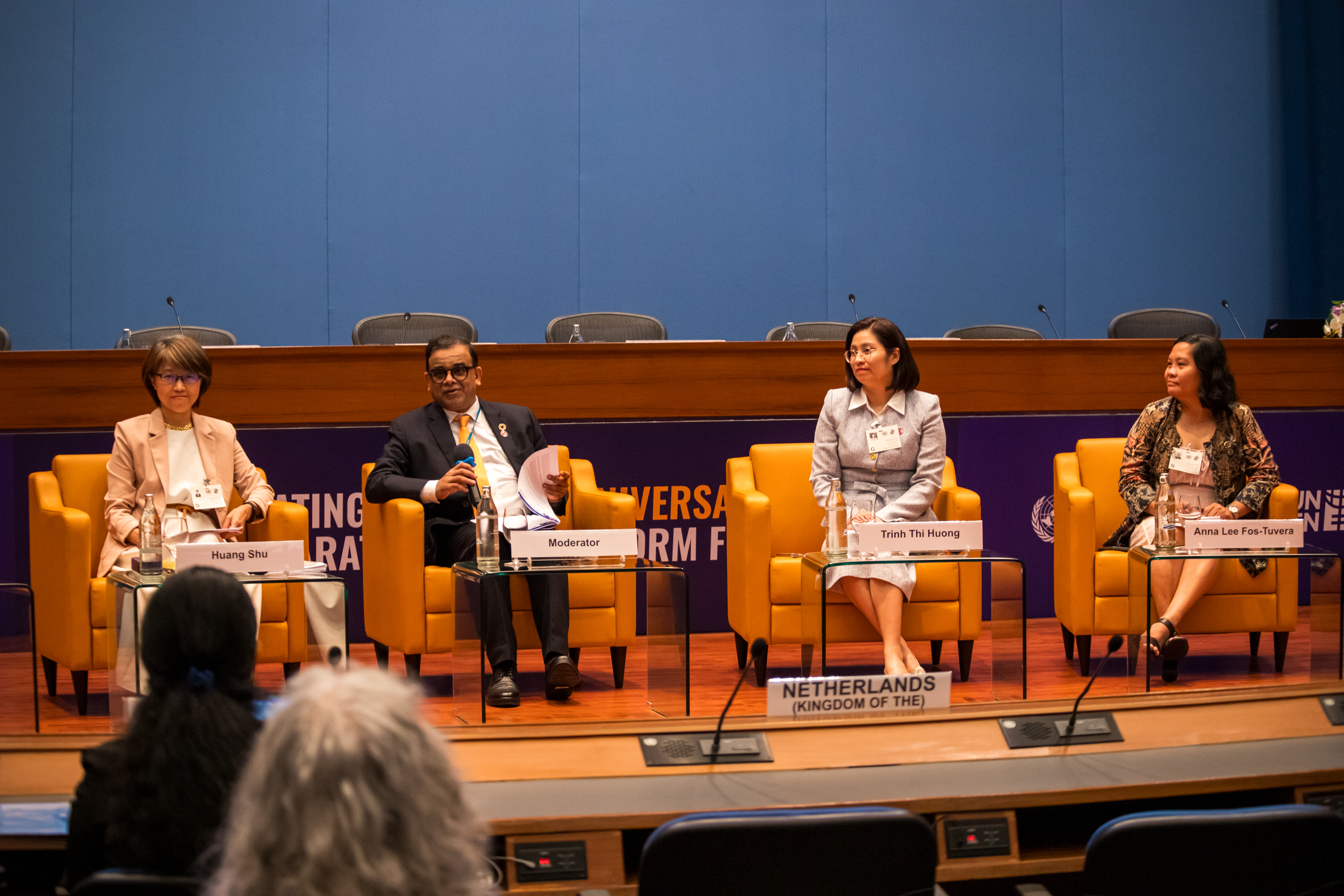Beijing+30 Regional Review Process
In accordance with ECOSOC Resolution E/RES/2022/5, the United Nations Economic and Social Commission (ESCAP) led the Asia-Pacific regional intergovernmental review of the Beijing Declaration and Platform for Action (BPfA) , in close collaboration with the UN Women Regional Office for Asia and the Pacific, and supported by the rest of the United Nations systems under the umbrella of the Asia-Pacific Issue-Based Coalition on Promoting Human Rights, Gender Equality and Women Empowerment.

The regional review aimed to assess current and emerging challenges that affected the implementation of the BPfA and the achievement of gender equality and the empowerment of women, and its contribution towards the full realization of the 2030 Agenda for Sustainable Development in the Asia-Pacific region. It also aimed to strengthen the knowledge base on progress and gaps in realizing the rights of women and girls in the region. The review sought to build regional consensus on actions needed to accelerate the implementation of commitments made in the BPfA. The Beijing+30 regional review built upon the regional review conducted by ESCAP and UN Women for Beijing +25 and the resulting Asia-Pacific Ministerial Declaration on Advancing Gender Equality and Women’s Empowerment.

The Beijing +30 regional review consisted of three main tracks: analytical, consultative, and intergovernmental.
ESCAP organized the Asia-Pacific Ministerial Conference on the Beijing+30 Review, in collaboration with UN Women Regional Office for Asia and the Pacific from 19 to 21 November 2024.

The conference was expected to reinvigorate political commitment to advance gender equality and the empowerment of women and girls in Asia and the Pacific and build regional consensus on priority actions to accelerate the implementation of commitments made in the BPfA. The conference acted as a platform for sharing knowledge and information on progress made, gaps, and challenges encountered in realizing gender equality and the rights of women and girls in the region. The outcome served as the region’s input to the deliberations at the 69th session of the Commission on the Status of Women in 2025.
The objectives of the conference were:
- To assess progress to the implementation of the Beijing Declaration and Platform for Action in Asia and the Pacific over the past five years;
- Review current and emerging challenges, good practices, lessons learned, and priority actions required to achieve gender equality and the empowerment of women and its contribution towards the full realization of the 2030 Agenda for Sustainable Development;
- Provide a platform for member States and stakeholders to explore policy options and strategies, including innovative approaches and good practices, toward realizing gender equality and the empowerment of women;
- Build regional consensus on priority actions to accelerate the implementation of commitments made in the BPfA
- Consolidate regional inputs to the sixty-ninth session of the Commission on the Status of Women which will focus on the review and appraisal of the implementation of the Beijing Declaration and Platform for Action and the outcomes of the 23rd special session of the General Assembly.

The conference brought together ministers, senior officials, and representatives from relevant ministries, community-based organizations, civil society organizations, youth organizations, academia, the private sector, United Nations entities, independent experts, and other relevant stakeholders from across the Asia-Pacific region.
You may also watch all the Beijing+30 Highlights videos on YouTube.
For more information, please visit the Asia-Pacific Ministerial Conference on the Beijing+30 Review event page.

Latest News
ESCAP and FDI Center mark one-year anniversary of Gender Pledge with six new signatories

Latest Reports
Asia and the Pacific SDG Progress Report 2026

Latest Events
Empowering Women, Shaping Thailand’s Future: A National Forum on Advancing Women Entrepreneurs and Community Enterprises in Response to Population Ageing and the Climate Crisis









